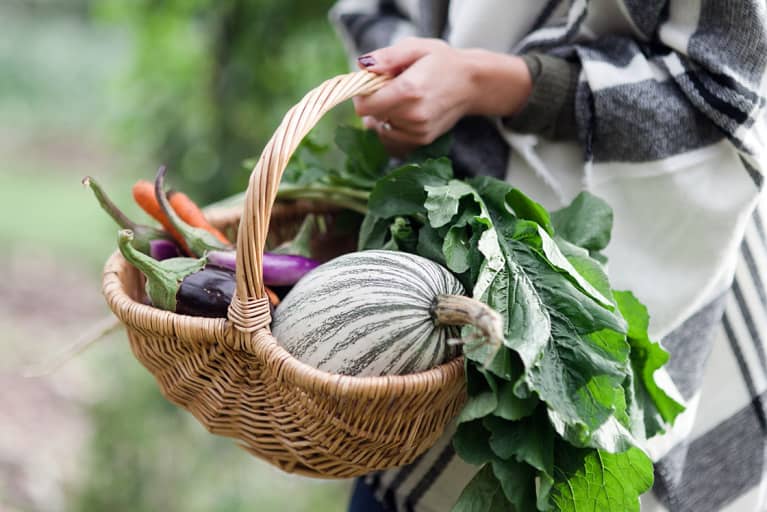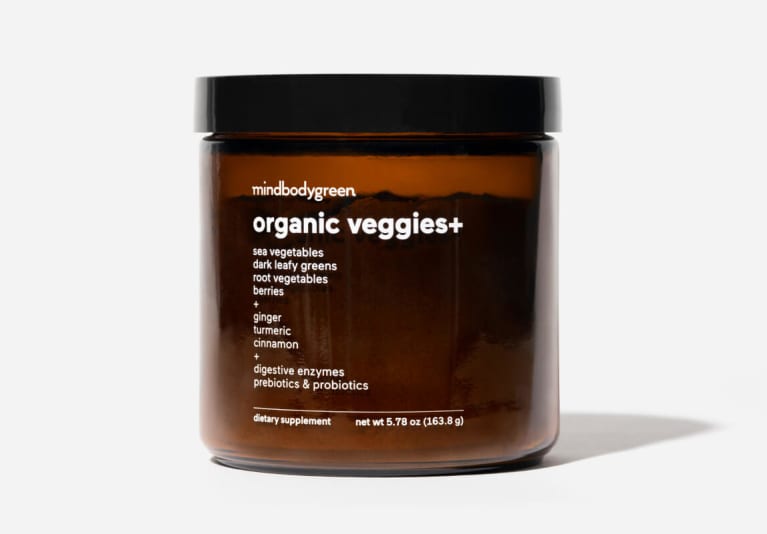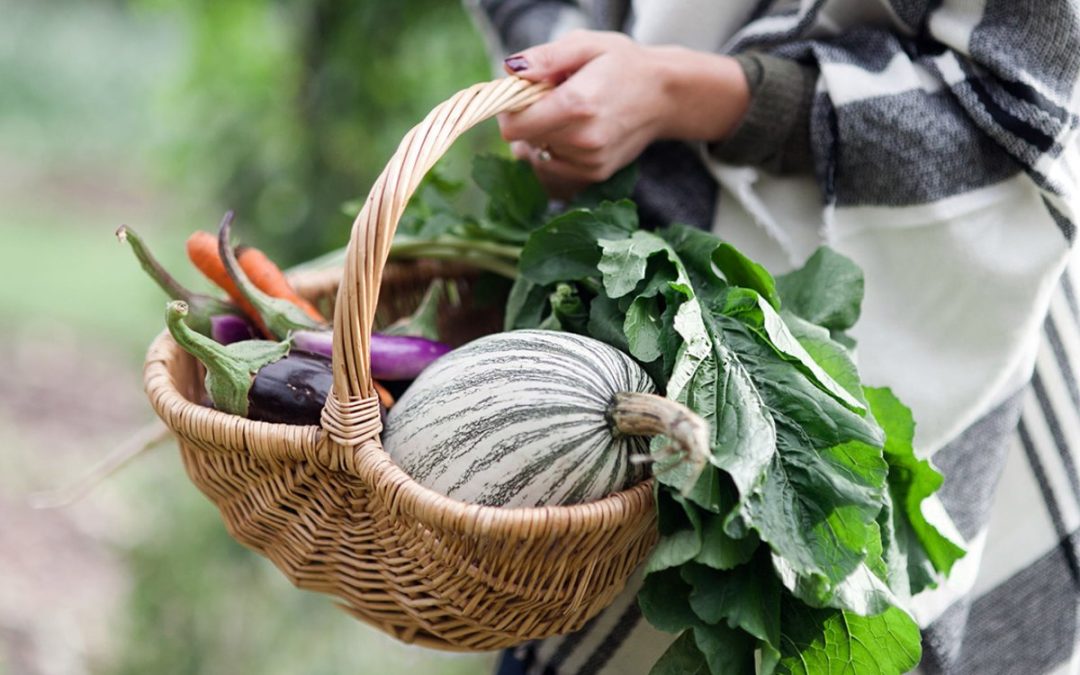|
Expert Opinion

Our editors have independently chosen the products listed on this page. If you purchase something mentioned in this article, we may earn a small commission.
September 16, 2022 — 10:01 AM
If you’re like me, a trip to the grocery store can leave you in a state of overwhelm. The choices are endless; there’s confusion about what’s “healthy” or “unhealthy”; and oh yeah, then there’s that whole cooking thing. On top of that, many of us are now also questioning “How does what I eat affect the planet?” It can be enough to make you run back home and just order in.
Thankfully, it’s often the case that what is supportive of the environment also happens to be good for your health. As an eco-dietitian, I’m consistently considering the environment when thinking about dietary choices. I’m also keeping in mind the impact that intensive farming practices and a compromised environment can have on the nutrient density of our food.
The inextricable connection between planetary and personal health informs everything I do, including what I put on my own plate.
Every time I buy food, I remember our environment is in trouble.
If you aren’t already aware, our current industrial food and agricultural system is not only responsible for close to one-third of global greenhouse emissions, but it’s also one of the leading causes of deforestation, biodiversity loss, contaminated water and air, and soil erosion. While certain food groups tend to have a softer footprint, it’s not only about what is grown but how that food is grown that can have either negative or positive implications for the environment.
Plant-based foods tend to use fewer resources than animal-based foods. Additionally, purchasing items grown using organic or regenerative practices that use fewer chemicals and employ soil-building techniques like cover cropping, composting, and crop rotation can also make a difference to our struggling Mother Earth.
Not only does healthier soil have a greater ability to store carbon and withstand extreme weather, but it tends to produce healthier plants. Diversity in our food system is also key for helping to preserve biodiversity in nature, which is fundamental for ensuring food security and increasing the spectrum of nutrients that we have access to.
How this affects what I bring home to my kitchen.
With all this in mind, here are five foods that usually end up in my cart. They’re gentler on the environment and also pack the nutritional punch I’m looking for:
These beautiful legumes use very few natural resources and are full of nutrients. They also “fix nitrogen” in the soil, meaning that with the help of friendly microorganisms, they remove nitrogen from the air and bring it to soil, where it can be used as a natural fertilizer. Bonus: These gems are also easy on the wallet. A 1-cup serving that provides close to 15 grams of protein and 14 grams of fiber usually costs around $1.
How I use it: I add them to salads, soups, stir-fries, and yes….smoothies!
Not all carrots are orange! These hearty root vegetables have a light water footprint, especially when grown organically, and provide numerous vitamins, minerals, and protective compounds called carotenoids. They also have a longer shelf life than many vegetables, making them a helpful team member in reducing food waste that also contributes to greenhouse gases. I’m privileged to be able to purchase them at my local farmers markets so I can determine that they have been grown without any pesticides and haven’t traveled more than 100 miles.
How I use it: I’ll roast them, steam them, or eat them raw in many meals and snacks throughout my week.
organic veggies+
Daily, nutrient-dense formula to support healthy digestive function*

Sea veggies like seaweed have been called a zero-input food source since they need no land, fertilizers, or water (aside from their natural environment) to grow. They also help shellfish develop thicker shells, absorb carbon dioxide, and can improve water quality. Plus they offer an abundance of minerals and a touch of protein and beneficial omega-3 fats.
How I use it: I sprinkle nori seaweed (the type often wrapped around sushi) on eggs and rice or whip up a simple wakame seaweed salad with sesame oil and rice vinegar to get my weekly sea veggie fix.
Hemp seeds are buttery and delicious seeds that require very little land and water to grow. They produce 19 times fewer carbon emissions than a comparable serving of protein from conventionally raised beef. They’re also an excellent cover crop that builds health into the soil (and our pollinator pals love them too).
How I use it: These plant-based protein sources can be a delicious addition to oatmeal, yogurt, and pesto. Or just pop them into your mouth as part of a snack!
This drought-resistant crop is a staple in my cupboards. I love including it in meals throughout the week to help support biodiversity in our food system and get me out of my own rice rut. Whenever I can, I purchase organic buckwheat, not only for the sake of the soil but because beneficial plant chemicals in this crop tend to be higher when fewer insecticides/herbicides have been applied.
Since I started working with Big Bold Health, I’ve become a big fan of Himalayan Tartary buckwheat, a close cousin of buckwheat, and the flour they help to produce. This super-nutritious crop is grown using climate-smart regenerative agriculture techniques that nourish the soil and protect the environment. Plus, it makes a mean blueberry pancake!
How I use it: I’ll enjoy buckwheat in a “bean and grain bowl,” serve it along with eggs, or toss it into any soup for additional bulk and nutty flavor.
I am working toward a day when all of the above are more accessible, inexpensive, and familiar to more people. In the meantime, eating with the planet in mind is, for me, a necessity and a nonnegotiable. Luckily, the benefits being conferred upon the environment are supporting my well-being too.

organic veggies+
Daily, nutrient-dense formula to support healthy digestive function*
organic veggies+
Daily, nutrient-dense formula to support healthy digestive function*

https://www.mindbodygreen.com/articles/foods-youll-find-in-eco-dietitians-grocery-cart

